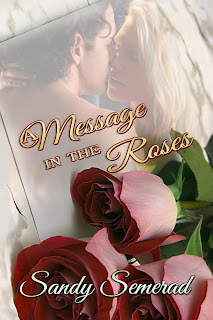As a writer, I’m always searching for a muse, and when country
music superstar Merle Haggard died recently, I became reacquainted with his
story and found him more inspiring than ever.
Haggard grew up dirt poor and became a hellion. He was sent
to reformatory schools, but no school could reform him. At 20, he robbed a restaurant. After he was arrested,
he broke out of the county jail, was recaptured and sentenced to San Quentin.
In prison, he gambled and brewed beer and was thrown into solitary confinement.
There he conversed through an air vent with a death row inmate.
This conversation
changed him, he said, and when Johnny Cash performed at San Quentin, Haggard
was inspired to become a musician. He taught himself to play the guitar, and
after his release, he worked in the oil fields, as he wrote and performed music.
He eventually composed 38 number one hits.
I find his story amazing. He overcame impossible odds to
achieve great success, and he found his muses in unlikely places.
Going for a simple walk can bring out a muse for me. I love
to walk on the beach near where I live. Nature created the white sands from crystal
rocks. The gulf sparkles like emeralds in the sunshine. I sometimes hear music
in the gulf’s roar. The other day, Larry and I were walking our dog P-Nut, and
I started to sing a tune I was hearing.
I asked Larry if he’d heard the tune before. He plays the piano
and has performed with many musical groups. He also composes music.
“Sounds different,” he said.
I explained how the tune flowed through me. He didn’t think
this was strange at all, but creative.
In thinking about the creative process, I remembered the time
Larry asked me to sing, “If I Can Dream,” at the church where he plays piano.
This song was written for Elvis Presley. Elvis was the only artist to record
the song, as far as I know.
On the morning of my performance, I walked to the podium to
sing, but then I flew into some kind of unconscious zone. The congregation clapped
afterwards, so I figured I did okay.
Larry said, kindly, “You nailed it.”
The preacher smiled and said, “You wiggled your hips while
you were singing.”
“You channeled Elvis,” Larry teased me.
But all joking aside, I’ve had many strange things happen to
me, mostly when I write. I can never predict how my characters are going to
behave. I think I know them. I have created their back story and outlined extensively,
but then when I start the writing process, my characters always surprise me.
They’re like jazz musicians. They know the structure and the rules, but they want
to jam and do their own thing.
My characters eventually return to the story line, but I often
have to figure out how to rescue them or not. Sometimes they create such a mess
I must call on my slumbering muse. She’s the one who appears in my dreams after
I go to sleep while thinking about the problem. This muse seems to have the
ability to provide a solution by morning.
Most of the time, I draw from my own experiences, as a
newspaper reporter, columnist, broadcaster, political activist, exercise
enthusiast, wife, mother and grandmother. I’m more comfortable writing about what
I know. Some of my favorite authors do the same. John Grisham, an attorney,
writes great legal thrillers, and many of Stephen King’s protagonists are
authors. In fact, King is considered one of American’s most prolific authors. Also, my fellow authors at Books We Love write tales on subjects they're passionate about.
In two of my novels (Sex,
Love & Murder and A Message in
the Roses), my protagonists are reporters. However in Hurricane House, the lead character is not a journalist, but a
catastrophe Investigator (CAT, for short). Creating this unique protagonist seemed
to make more sense. Luckily I know a CAT, and he generously shared his knowledge
with me. As to describing the hurricane, that was easy. Larry and I have
survived a few of those.
I created A Message in the Roses, from a murder
trial I covered as a newspaper reporter in Atlanta. But even though I lived
through this trial, I had to immerse myself in 80s music again and read news
accounts from that time before my muse decided to resurface.
While working on the sequel, I’ve tried to set reasonable writing goals, allowing for my day
job and family responsibilities. This time around, I’ve had to call on a
variety of muses, alive and dead. Will they lift me to a higher plane and help
me write my best novel yet? I hope so.
To read more about my writing, please visit my website: www.sandysemerad.com
Here’s my latest novel, A MESSAGE IN
THE ROSES:





















.jpg)


